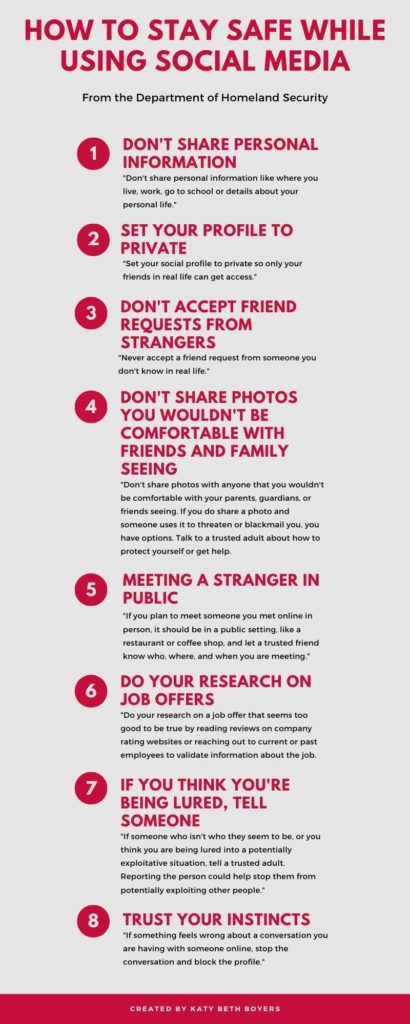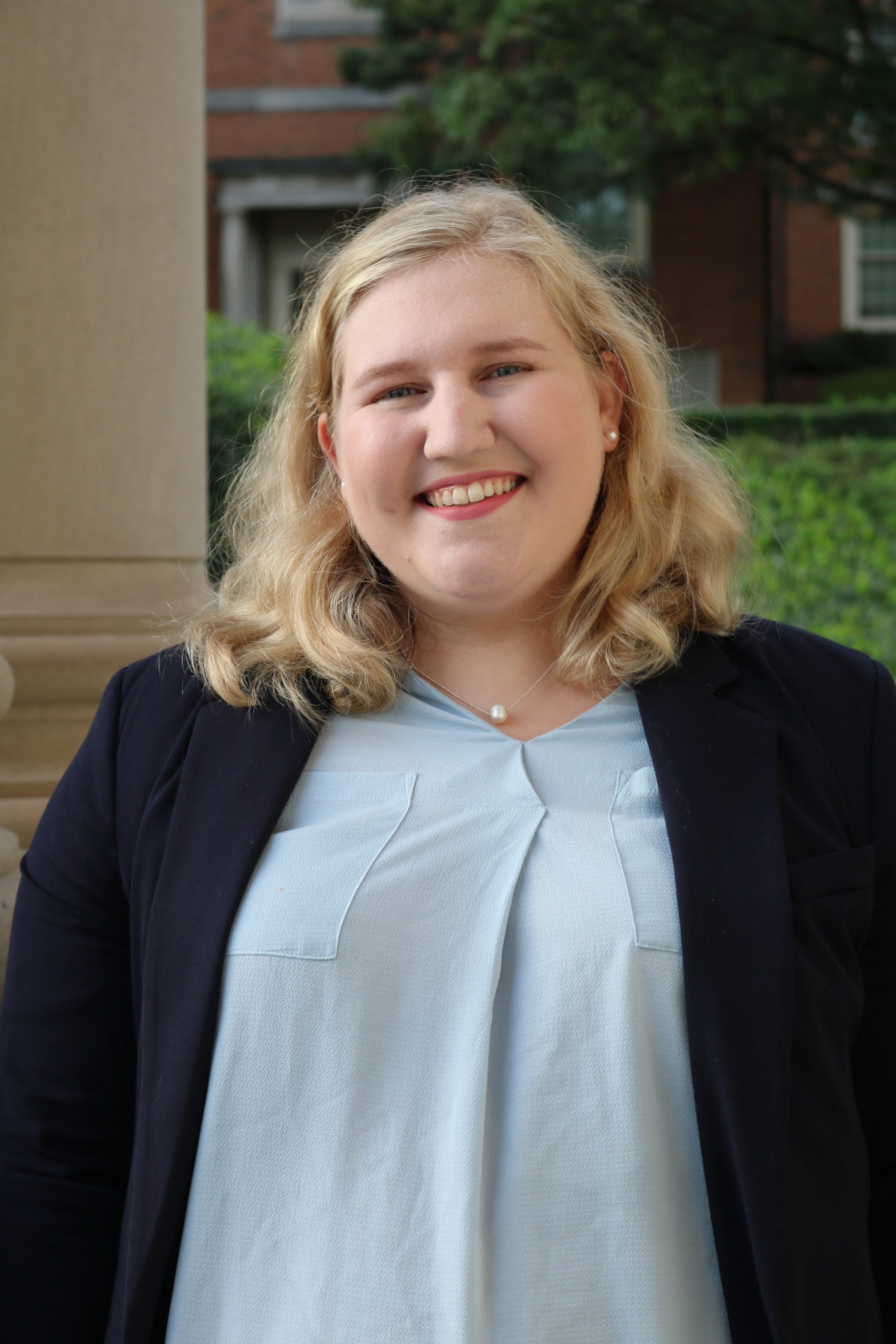By: Katy Beth Boyers
Editor’s note: The Samford Crimson identified the students in this story by first name only in order to protect their identity. This story discusses human trafficking, social media and stalking.
At Samford, students are said to live in what is called the “Samford Bubble.” Inside, everything is believed to be protected from what is going on outside campus. However, there are times when students have to venture off-campus for groceries, gas or to just eat somewhere off-campus. Once students leave the “Samford Bubble” they enter the real world, which can be more dangerous than people may realize.
“There are areas around here that if you go two directions or two miles [one] way, you’re fine,” Chief of Police at Samford University Tommy Taylor said. “But if you go two miles the other way, all of a sudden you’re in an area where there is criminal activity.”
In the past few years, students have talked about strange encounters with people in Walmart on Lakeshore Parkway and other places nearby. Some students have said they have felt people following them and filming them with their phones.
It has also been well reported by local media that the Greater Birmingham Area has issues of prostitution and human trafficking. . While the accounts of Samford students are likely not related to human trafficking according to national and local statistics, Samford students should be aware of what goes on outside the “Samford Bubble,” as well as what to do if they get into situations where they feel someone may be following or filming them while off-campus.
The following are first-hand accounts as told by Samford students.
In August, before this fall semester began, Grayson said she went to the Walmart on Lakeshore Parkway to grab a birthday card. She said she normally does not go to Walmart by herself, but did that time. During this trip, Grayson said she believed a man followed her into the store. While walking around looking for the card aisle and talking to her mother on the phone, she said she had a feeling that someone was behind her.
“I turned around and realized that [the man who had followed me in] had his phone out, taking pictures of me,” Grayson said. “Immediately I dropped everything I had and ran to my car.”
Grayson said the man was holding his phone near his waist and had the phone angled up toward her.
“He was looking down at his phone and you could tell he was shooting up and taking pictures of me,” Grayson said.
Grayson said although she lives close to Walmart, she feels too uncomfortable to go back after her experience.
While Grayson’s encounter happened recently, other students, including other women, said they have also had strange encounters with people following them in Walmart and the Dollar Tree on Lakeshore Parkway within the past two years.
Last fall, Madison said she went to the Dollar Tree on Lakeshore Parkway with a couple of friends. When she and her friends walked out of the store, she said, a man followed them and started taking pictures. Once they saw what the stranger was doing, Madison said she and her friends quickly got into their car and contacted local authorities.
“Once we got in the car, we got out of there really fast, and called the police,” Madison said. “He continued to follow our car through the parking lot.”
Another student, Finlay, said she was followed by someone in Walmart when she was shopping with her parents a little over a year ago.
“I definitely will never go to the Walmart on Lakeshore again no matter if it’s daytime or nighttime. Going there has always made me uncomfortable, nervous and unsafe,” Finlay said. “There just always seems to be some kind of sketchy activity going on in that area.”
According to local news reports, there have been recent cases of prostitution and human trafficking in the area. In August, Homewood police, assisted by the FBI and Department of Homeland Security, arrested five people in a prostitution operation at a hotel in the Lakeshore Parkway area of Homewood. In the first week of October, , the Jefferson County Sheriff’s Office Vice and Narcotics Unit, working, other local law enforcement agencies, charged two men with human trafficking following an operation at a Fultondale hotel. Police also charged 13 people with prostitution as part of the human trafficking probe.
In February 2020, AL.com interviewed Doug Gilmer, resident agent in charge of Homeland Security Investigations, and James Hernandez, special agent in charge of Homeland Security Investigations in Alabama Birmingham, Gilmer said, has become a major hub in the south for human trafficking.
“Part of it is due to our proximity to Atlanta,” Gilmer said in the interview. “There’s the 140-mile stretch between Birmingham and Atlanta is often dubbed the sex trafficking super-highway.”
According to the United States Department of Homeland Security, human trafficking involves force, coercion or fraud to get some type of labor or commercial sex act.
“It can happen in any community and victims can be any age, race, gender, or nationality,” the U.S. Department of Homeland Security states on its Blue Campaign website. “Traffickers might use violence, manipulation, or false promises of well-paying jobs or romantic relationships to lure victims into trafficking situations.”
With social media today, traffickers can find potential victims by looking at their social media and contacting them there.
“Individuals looking to exploit others can gain access to potential victims online because they are not always aware of how dangerous online environments can be or how to keep themselves safe,” according to the Department of Homeland Security.
The Department of Homeland Security also works to educate the public on the dangers of human trafficking, including online safety.
While human trafficking is an issue in Birmingham, Samford Chief of Police Taylor said the experiences Samford women have reportedly encountered are more than likely not potential kidnapping attempts.
“That’s not to say it doesn’t happen ever, but the statistics that I’ve seen are less than 1% of kidnappings that take place actually have anything to do with human trafficking, and that’s not just here in Homewood, that’s nationwide,” Taylor said.
AL.com reporter Carol Robinson cited the same statistic in her interview with agents Gilmer and Hernandez.
“Law enforcement can point to no one in Alabama who was kidnapped and sold into sex trafficking,” Robinson reported in her story.
Taylor said he believes the individuals filming Samford students are doing it to scare them.
“If it were not the case, there would be far more attempted kidnappings, kidnappings, assaults,” Taylor said. “Some people just enjoy the scare tactic of it.”
Taylor said that the people who film strangers know that people live on their phones and social media, and they are doing it to scare people.
“So many times, potential perpetrators or criminals who are engaging in that type of activity, they know that people, not just people your age and college students and young adults, they live on their phones, and social media is a big part of their lives,” Taylor said. “So, sometimes I think what people try to do is they try to capture video or audio like that, in order to go back to that intimidation factor, not necessarily even to try to coerce them to do anything illegal or anything like that, sometimes that does happen, but I think the biggest factor is just the intimidation factor.”
Officer Taylor recommended that students who encounter circumstances like those previously described flee the area and then contact local authorities.
“What you see some people do is they’ll see something strange taking place and they’ll stay there to video it themselves or whatever. Don’t do that,” Taylor said. “Leave the area, create distance between you and the problem, contact local authorities, dial 911, let the law enforcement officers know, and then report the information.”
He also recommended that people not try to film the stranger and their vehicle themselves, as it can put people in a position where they can potentially encounter harm.
“One of the things you see people do as well now is if there’s an issue they will go around the car, they’ll videotape the car tag and all of this stuff, Taylor said. “I understand why they are doing that because they’re trying to get as much information they can about the person who’s doing what’s making them uncomfortable.”
Taylor said those efforts are unnecessary.
“In all likelihood, there’s going to be some video footage if it’s at a big grocery store chain or a big shopping center,” he said, “there’s going to be typically some sort of footage that’s going to pick that up anyway.”
Taylor said he always encourages t students and faculty to be proactive on the front end in these situations.
“Be aware of where you are. Be aware of your surroundings. Make sure you have your phone with you. Remember where you park. Try to go to locations in groups if you can. I know it’s hard now with COVID because of distancing and everything, but under normal circumstances, that’s the safest thing to do,” Taylor said.
Due to the proximity of Samford University to Birmingham, it is important for students to be proactive on the front end by being aware of their surroundings, where they are and make sure they always have their phone with them.
“Anything that you can do on the front end to keep yourself out of those situations is the best thing you can do,” Taylor said.







